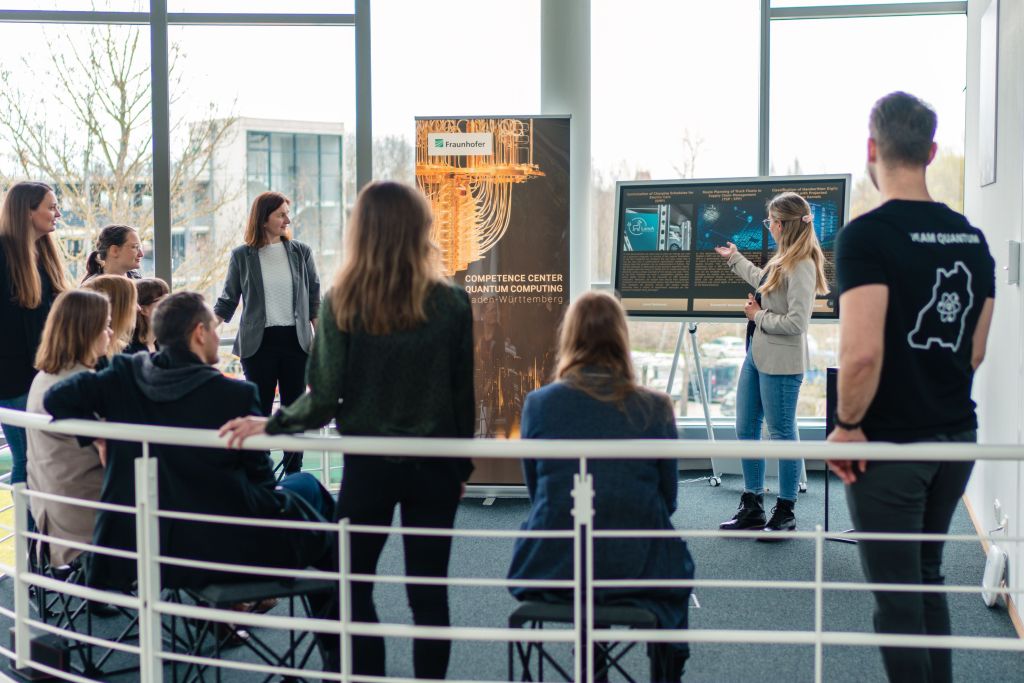Seminar / October 11, 2023
Quantum Computing Compact @ Quantum Effects
Intro to QC — Basics, Implementation and Application
Quantum computing promises great potential for companies in almost all industries. Next to speed and precision advantages, the combination with Machine Learning opens significantly new possibilities. But how does quantum technology work, why do qubits make quantum computations so powerful and how can they be programmed by developers? In our course “Quantum Computing Compact”, we train the experts of tomorrow — ready to get started?
The education program “Quantum Computing Compact” provides a comprehensive knowledge of how quantum computing can be implemented. The course aims for a general understanding of quantum technology and builds up necessary key competencies for industrial application, aiming to educate and specialize developers in quantum software development.
Therefore, the course is divided into three modules that are built on each other but can also be attended individually.
13:00–14:00: Quantum Computing Basics: Algorithms, Programming and Implementation
This session gives a basic introduction to the qubit (short for “quantum bit”), its visualization on the Bloch sphere, its measurement as well as its manipulation by quantum gates and possible sources of error. We further explain the quantum effects of superposition and entanglement on multi-qubit systems and finally solve a Sudoku using the famous Grover algorithm, demonstrating the quadratic speedup of this algorithm over any classical method.
14:00–15:00: Implementation with Qiskit: An Overview of the Open Source Quantum Computing Software Platform
In this module we will take a closer look on how quantum computing looks in practice with Qiskit. We address general questions like “What is Qiskit?” and “How can it be used?”. After that, we will proceed to talk about the challenges of using real quantum computers as well as how you can create your own programs. While Qiskit is used as an illustrative example, the concepts shown are of general nature and will help to improve your understanding of quantum computing.
15:00–16:00: Quantum Computing Application: Quantum Machine Learning in Production and Logistics
In this session, we will give an introduction to (Quantum) Machine Learning (“QML”) by looking at an exemplary industry application. Machine Learning can help companies to analyze data and make predictions to optimize their operations. However, traditional ML algorithms may not be able to handle the complexity and scale of the generated data. Here, QML can provide a solution by enabling the development of more efficient and powerful algorithms for a wide range of use cases.
The event is aimed at
Researchers and developers in the field of quantum computing as well as technology scouts and managers of companies interested in the technology.
 Fraunhofer Institute for Applied Solid State Physics IAF
Fraunhofer Institute for Applied Solid State Physics IAF